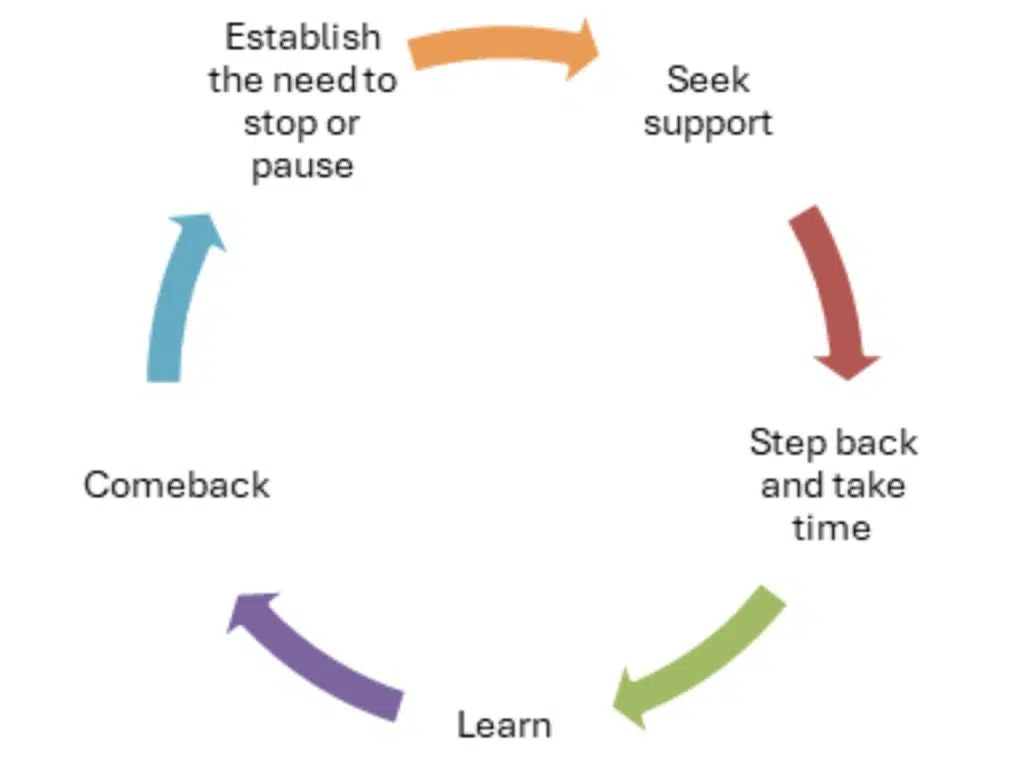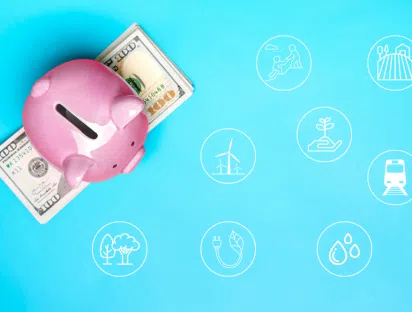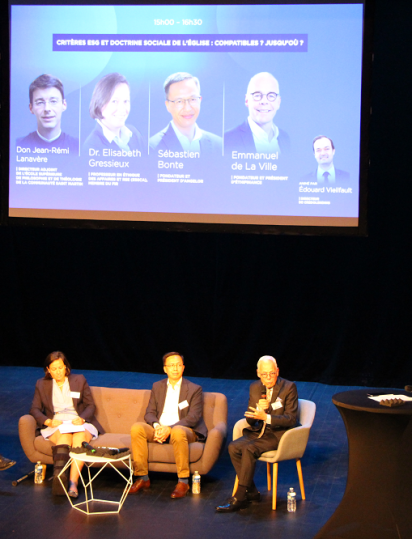
Entrepreneurs make economies turn and prosper. They create a large proportion of new jobs, take economies out of recessions, propose disruptive innovations, and change how we live. Further, those of us who have had the opportunity to develop a product, service, or even a firm know the unique sense of accomplishment and pride that comes with it.
The hidden side of such achievement is also common to all entrepreneurs: failure. According to the Bureau of Labor Statistics, in the US, at least 20% of businesses will fail in their first two years, and up to almost 50% will do so by age five. Therefore, we question what is there to be said (and known) about failure, and most importantly, what do we know about eventually coming back?
Failure is more common than we think
Embarking on an entrepreneurial journey is a rollercoaster ride filled with trials and triumphs. Some entrepreneurs face unexpected roadblocks that force them to pause or close their businesses for an extended period. Despite the setbacks, many individuals force themselves through a process of time and resilience that helps them reactivate themselves and recreate ventures and careers.
In our research, we gathered insights from successful entrepreneurs who navigated through business failures and comebacks. The first example that comes to mind is Elon Musk. The visionary behind Tesla and SpaceX faced significant challenges in Tesla’s early days. Financial strains, production delays, and scepticism from critics led Musk to stop production temporarily. His pivotal lesson from this experience was the importance of planning strategically and adapting to unpredictable circumstances. Musk emphasises the prerequisite of a resilient mindset, urging entrepreneurs to perceive obstacles as opportunities for growth.
Steve Jobs, the co-founder of Apple, endured a turbulent period when he was expelled from his company in the mid-1980s. After his departure, Apple faced stagnation, and its future seemed uncertain. In 1997, Apple acquired NeXT, a company Jobs founded during his time away, leading to Jobs’ return. He introduced ground breaking products like the iPod, iPhone, and iPad during his second tenure at Apple. Jobs’ takeaway is about the power of reinvention and the ability to turn adversity into innovation.
Howard Schultz, the former CEO of Starbucks, temporarily stepped down in 2000 after the company faced a challenging period. During his absence, Schultz realized the critical significance of staying true to the brand’s core values. Upon his return, his primary focus was rejuvenating the Starbucks experience and overseeing global expansion. Schultz’s counsel emphasises the importance of maintaining a solid connection to the company’s mission and values, especially during challenging times.
Reed Hastings, co-founder of Netflix, faced a setback when the company’s stock plummeted in 2011. A price hike and an unsuccessful attempt to separate the company’s DVD rental and streaming services led to a substantial loss of subscribers. Hastings, nevertheless, demonstrated resilience by learning from mistakes and redirecting the company’s focus towards the streaming platform. Netflix became a prevalent force in the entertainment industry. Hastings advocates pivoting, quickly changing direction, and adapting to new circumstances.
Sometimes, it is a matter of self-care
For some, the need to pause their businesses arises due to personal challenges such as health issues, family matters, or personal crises. Arianna Huffington, the co-founder of The Huffington Post, faced a health crisis in 2007 when exhaustion and burnout led to her collapsing from sleep deprivation. This incident prompted her to reevaluate her priorities and step back from her role. Following her recovery, Huffington became an advocate for well-being and sleep. Her story underscores the significance of self-care and its impact on an entrepreneur’s overall success.
Richard Branson, a British tycoon and co-founder of the Virgin Group, experienced a pause in his business due to a severe health fright in 2016. A bicycle accident left him with severe injuries, forcing him to reassess his work habits and priorities. Branson’s journey to recovery reinforced the importance of resilience and a positive outlook, particularly in the face of personal challenges. His advice for entrepreneurs is to listen to their bodies and prioritise their health.
Oprah Winfrey, media mogul and founder of the OWN Network faced a challenging period in 2011 when she decided to end her iconic talk show, “The Oprah Winfrey Show”. This significant personal and professional transition allowed her to focus on other aspects of her life and career. Winfrey’s experience highlights the power of making tough decisions for personal well-being and the potential for new opportunities to emerge from those choices.
Mark Zuckerberg from Meta took a two-month paternity leave in 2015 after the birth of his first child. During this period, Zuckerberg prioritised his family, experiencing the profound impact of a work-life balance. His journey underscores the significance of celebrating personal milestones. It emphasises the need for entrepreneurs to prioritise their well-being and family commitments, even amid the demands of managing a thriving business.
This insight accentuates the holistic approach to success that recognises the close connection between personal and professional aspects of life.
Personal hardships can be powerful catalysts for positive change.
Pausing a business due to health, family, or personal issues requires a unique strength and self-introspection. Entrepreneurs like Mark Zuckerberg, Arianna Huffington, Richard Branson, and Oprah Winfrey showcase that embracing personal well-being and addressing life’s challenges head-on can lead to renewed success in the professional realm.
The stories of these accomplished entrepreneurs underline the inevitability of hardships and strains in the entrepreneurial world. Pausing a business for an extended period may seem like a setback, but the pivotal perspective is to see it as a strategic pause for recalibration. Learning from industry giants like Elon Musk, Steve Jobs, Howard Schultz, and Reed Hastings, entrepreneurs can adopt resilience, strategic planning, reinvention, and adaptability as essential elements in their track to success. Remember, the pause is not the end, just like the theatre’s intermission is not the play’s culmination. Instead, it’s a time for recalibration, upgrading, and rearranging the stage to prepare for the next act.
Is this a failure?
These examples make us question if these situations can be classified as failure or if we should reassess how we refer to unsuccessful business ventures and recalibrations of businesses. For instance, research has found that 65% of novice entrepreneurs will make a comeback and try their chances again at launching another business. Interestingly, only those who do not acknowledge having failed will have limited chances of ever trying it again.
Furthermore, when the decision to close or pause a business arises, what is necessary is taking time to complete what we will define as a rebounding cycle. From our research and observations, for entrepreneurs to fully reinvest themselves, they must allow themselves to undergo the following process.
First, they must acknowledge the need to pause or stop. Second, they must seek support to make such a decision. Third, they must take a step back and take time to gain perspective and learn (this is when they need to ask why and what). Then, they must integrate what they’ve learned and prepare for a comeback. Once these steps are completed, they can consider a comeback. What is essential for each step is that entrepreneurs gain awareness about the importance of undergoing each of them consciously.

Our how-to guide for improving your rebounding cycle
As we said before, pausing or stopping a business is a necessary choice to make. Either because the business model is not working as you expected or because of family or health issues, most entrepreneurs will face such a decision soon. Therefore, we have conceived a five-step guide that may help you pause, rest, and make a successful comeback!
- Avoid denial. The first important thing to do is to avoid denial. Life experiences include unsettling periods, but it is necessary for our mind and spirit to go through such periods to accept the situation. As presented in our framework, the decision to stop includes a moment of grief. Although denial is a natural reaction that protects us from the unknown, achieving a stage of acceptance is the final point necessary to stabilise our emotions and move on. Furthermore, research indicates that entrepreneurs who do not accept the situation are highly unlikely ever to undertake a new entrepreneurial challenge.
- Build psychological capital. Research shows that our psychological capital will help us rebuild ourselves after difficult times. Psychological capital is a collection of four psychological states that make us feel good: hope, efficacy, resilience, and optimism. To build this capital, entrepreneurs can rely on specific techniques like humour or defensive pessimism (imagining how a situation can go wrong to prepare oneself).
- Anchor in an entourage. If you are about to go through a halt to your entrepreneurial career, do not do it alone! Although not largely talked about, there are several relevant resources that you can use to make you better surrounded while you are going through this difficult time. In France, associations like 60000 rebonds or Second Souffle allow you to contact free coaches and mentors who are there to support you and guide you. Other events include fuckup nights, gatherings where other entrepreneurs in the same situation join to share their experiences and gain perspective.
- Look after yourself. Maintaining good mental health is fundamental to developing resilience and overcoming change. According to a recent study of almost 300 entrepreneurs, 70% acknowledged mental health concerns. The findings of this study are significant because they suggest an underlying relationship between entrepreneurship and many of the affective, cognitive, and mental health conditions that a stressful situation may trigger. Entrepreneurs must note this trend and act accordingly, seeking medical help if necessary when overcoming this moment.
- Take time. If you need time, take it! Time will allow you to recover psychologically and physically. It will also give you the space necessary to complete a full cycle of rebounding, for which learning and gaining perspective are required.
© EBR Media Ltd, 2023. The definitive, and edited version of this article is published in The European Business Review www.europeanbusinessreview.com




